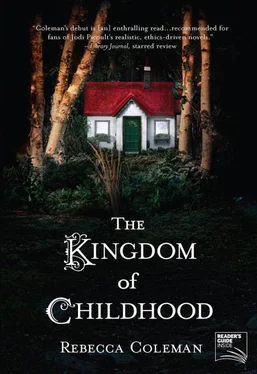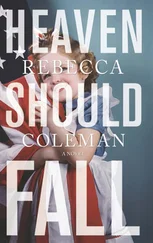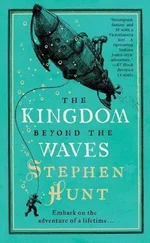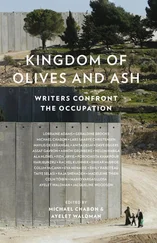A clamor of complaints went up. I looked at Dan, expecting him to call for order, but he remained silent in his chair, tapping a pen against his notebook and gazing in my general direction. Finally I spoke above the din.
“I do understand,” I said, and waited for the noise to die down. “But tight budget or not, this is a Waldorf school. For almost twenty years I’ve been explaining to parents why their five-year-olds can’t wear their Spider-Man and Little Mermaid shirts to school. I’ve led more seminars than I can count about the kiddie industrial complex. I will break out in hives if we send these kids home with glossy brochures for some artificial trophy they can buy on an installment plan. The idea is—” I considered my adjective for a moment. “Repugnant.”
“Well, the trustees have approved it.” Dan met my glare with a look of false good humor. “Let’s move on.”
“Let’s discuss it further.”
His gaze turned icy. “Let’s move on.”
At the end of the meeting, I gathered up my bags a bit too slowly and got caught behind the cluster of teachers filing out of the room. His hand fell heavily on my shoulder. “Judy, can I speak to you in private?”
He closed the door behind the last teacher and turned to me with an apologetic frown. “I knew you weren’t going to be happy about that. I felt it coming as soon as the trustees gave me their recommendation.”
“I’m astonished that you signed off on it. How could you? Class rings, of all things. How about a Duke Nukem video-game tournament? We could charge admission.”
“You’re overreacting.”
I widened my eyes in indignation, but he held up one hand. “Don’t start with your list of the principles this school was founded on. I’ve been working in Steiner schools for as long as you have. Your board recruited me here based on that. Because this school was failing.”
“It’s never been failing . It’s been poorly managed.”
“You’re damn right it has been. I’d never seen a College of Teachers so dysfunctional, and you served on it. We wouldn’t need to make these concessions if the school had gotten its act together five years ago, or ten. How white is your classroom?”
Confusion took the edge off my anger. “What?”
“How white is it in there? Because we can’t bring in kids from the neighborhood without financial aid, and we can’t provide financial aid if we can’t even cover our utility bills. We have to take whichever families can pay, and you know what that means. The school gets whiter and richer and richer and whiter, and if you ask me, that’s selling out the principles more than the rings ever could.”
I glared at him without replying.
“You need to face facts, Judy,” he said, his voice lower than before. “This is about survival. I didn’t pack up my family and move across the country so I could bring down your school. That should be obvious enough to you. My son is in your class, for God’s sake. I came here because I believe in this. But my first priority is to keep our heads above water. It has to be.”
“‘Life is the unknown and the unknowable,’” I quoted, “‘except that we are put into this world to eat, to stay alive as long as we possibly can.’”
“Yes,” he said with passion. “Kahlil Gibran, right?”
“Jonathan Livingston Seagull,” I corrected, and met his ice-blue gaze. And there, for a single unnerving moment, I felt my reproach stumble over the electrified wire of my dream of him: a memory that had never happened.
In the hallway, the other teachers left me alone. Even Sandy hurried ahead. They walked to the parking lot in pairs or trios, chatting amongst themselves. It was a little like high school: nobody likes a know-it-all. In a few days I would return to their good graces.
Stepping out into the parking lot, I heard the squeal of a saw from the workshop and turned toward the sound curiously. So far as I knew, I was the last to leave; could a student still be working at this late hour? I sidetracked up the path and pushed open the heavy door. There stood Zach, working on the same saw with which he had been occupied the previous day, now hoisted onto the worktable. Sawdust twinkled like glitter in the sharp, low sunlight.
I called, “Are you allowed to work in here unsupervised?”
He blew the dust from a board. “Technically, no.”
I stepped inside and let the door close behind me. “Well, at least you’ve got your safety glasses on.”
“I wear contacts. The sawdust would scratch my eyes up if I didn’t.” He pulled the glasses off and added, “You look wiped.”
His observation surprised me. My experience with teenagers had taught me they possessed an almost aggressive skill for ignoring the emotional states of adults. It was the same way they handled pet messes or dirty dishes: you can’t be held responsible for what you fail to observe.
“Dr. Beckett and I had a difference of opinion at a faculty meeting,” I explained, probably unwisely.
His interest was immediate. “Oh, yeah? Over what?”
I infused my weary voice with a bit of sardonic enthusiasm. “We’re going to have our very first class ring sale.”
He snickered. “That’s lame.”
“Do you think so?” Again I was surprised. Normally Waldorf students leaped at the opportunity to take part in the for bidden rituals of the ordinary public high school.
“Of course. Steiner would not approve.”
“I thought you and Steiner were butting heads.”
He offered his abashed grin again, turning a piece of wood over in his hand. “Over me being a crime against nature, yes. Not over anything else.”
“ Nothing else?”
He shrugged. “I’ve liked my schools and all that. I’m happy. I’ve got no complaints.”
I walked around to look at the playhouse. The pile of boards that had been laid out on the floor the day before were now assembled, the corners dovetailed together with smooth, perfect notches. I ran my fingers over the edges and admired the scalloped gingerbread trim laid out on the worktable. The project had all the marks of competence, which was far more than I had expected out of a high school junior. It was certainly better than anything Scott had done in his arts classes the year before.
“It looks like the project’s coming along well,” I said. “When do you expect to have it done?”
“A couple weeks. It needs to be finished by the end of the term so I can get a grade. I wanted to do a thatched roof, but Mr. Zigler said it would be a fire hazard.”
“He has a good point.”
“I suppose. I like fire, so for me that’s a selling point.”
I chuckled. “Not if someone’s inside it, though.”
“I guess not, yeah. But it would make a cool prop for a pillage scene in a play. I bet it would burn like a mother.”
I indulged him with a wry smile. “So what are you going to do for the roof?”
“Cover it with acorns. The kindergarten at my old school had one like that. It’ll look cool.”
“Where are you going to find enough acorns to cover the whole roof?”
He pointed to a box against the wall. Greg’s All Natural Potato Chips, read the ’60s-style bubble script printed on its side. Acorns filled it to the brim. I asked, “Where did you find all those?”
“The woods. My mom actually let me take the car for once, so I could collect them. In the service of the higher good.”
“You’ll have to show me. I could use some of those for a craft project, myself.” I peeked into the playhouse and examined its tight corners, giving it a slight shake to see how well it held. It hardly budged. “The joinery is beautiful. You’re very good with your hands.”
Читать дальше












